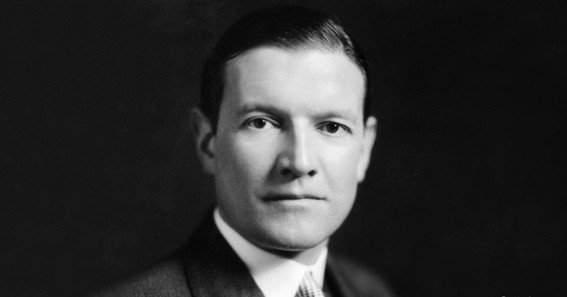If you’ve ever wondered why does Henry Chanon think appeasment was bad, you’re most likely referring to Henry “Chips” Channon (1897–1958)—an American-born British Conservative MP best known for his candid and often gossip-filled diaries. Although widely remembered for their commentary on high society and the British political class, Channon’s writings also illuminate attitudes toward the policy of appeasement in the 1930s. Originally a supporter of Prime Minister Neville Chamberlain and his diplomatic approach to Adolf Hitler, Channon—like many contemporaries—came to acknowledge appeasement’s flaws once it became clear that Hitler’s aggression would not be contained by concessions.
How Channon’s Perspective on Appeasement Evolved
1. Early Support for Chamberlain
- Faith in Diplomacy
During the mid-to-late 1930s, many in Britain—Channon included—were weary of another major conflict following World War I. Neville Chamberlain’s policy of appeasement sought to avoid war through negotiation and concessions. - Fear of War’s Aftermath
Channon’s diaries often reflect the pervasive dread among the British upper class regarding another catastrophic war. This backdrop helps explain why he initially tolerated, or even tacitly supported, Chamberlain’s strategy.
2. Mounting Disillusionment
- Sudetenland and Munich Agreement
The Munich Agreement (1938) was seen by appeasement advocates as a diplomatic triumph. However, Channon and others gradually recognized that the concessions—ceding the Sudetenland region of Czechoslovakia—merely emboldened Hitler. - Diary Entries Show a Shift
Later notes in Channon’s diaries reveal disappointment and growing skepticism. As it became evident that Nazi Germany’s expansionist aims would not stop, the futility of appeasement set in.
3. The Outbreak of War
- Final Straw: Poland Invasion (1939)
Germany’s invasion of Poland in September 1939 shattered any remaining illusions that appeasement might keep peace. Channon’s diaries reflect a clear realization that Hitler could not be restrained by diplomatic overtures alone. - A Broader Political Consensus
Channon was far from alone in this realization. Across the British political spectrum, figures who once cautiously endorsed appeasement joined Winston Churchill’s firm stance that Britain had to stand up to Hitler militarily.
4. Retrospective Criticisms
- Emboldening an Aggressor
By the time of the Blitz and Britain’s entry into the full-scale conflict, critiques of appeasement coalesced around one key point: that yielding territory and allowing Germany to grow stronger only delayed a war Britain would eventually have to fight. - Influence on Post-War Politics
While Channon continued to serve in Parliament, his diaries reflect the hardened lesson that appeasement taught Britain: dictators rarely stop if offered concessions.
Why Channon Believed Appeasement Failed
- Underestimation of Hitler
Channon’s writings suggest he and other appeasers misread Hitler’s true ambitions. Diplomacy can only work with an actor willing to negotiate in good faith, which Hitler was not. - Short-Term Gains, Long-Term Costs
Keeping peace momentarily seemed beneficial, yet concessions handed Germany crucial time to rearm and expand—making eventual conflict more devastating. - Erosion of Credibility
Each concession to Germany undermined Britain’s standing and international credibility, limiting deterrent power in the face of continued aggression. - Inevitable War
As events played out, war became unavoidable. Channon’s diaries illustrate a growing sense that Chamberlain’s hopes for a peacefully negotiated settlement were unrealistic. - Reflective Regret
Like many in the political elite, Channon later saw appeasement as a tragic miscalculation—one that cost Europe dearly in human and territorial terms.
Frequently Asked Questions (FAQ)
- Q: Who exactly was Henry “Chips” Channon?
A: Henry “Chips” Channon was an American-born British Conservative MP and diarist, renowned for his insider perspective on British society and politics from the 1930s to the 1950s. - Q: Did Henry Channon initially support appeasement?
A: Yes. Like many of his contemporaries, Channon initially believed appeasement might prevent another catastrophic war. His diaries show he grew disillusioned as Hitler continued to violate agreements. - Q: Why does Channon’s opinion on appeasement matter?
A: Channon’s diaries offer a firsthand account of the British political mindset leading up to World War II. His evolving stance mirrors that of a broader shift within Parliament and the public. - Q: How did Channon document his changing view on appeasement?
A: Through diary entries in which he expressed both his initial relief at avoiding war and, later, his realization that concessions had only emboldened Nazi Germany. - Q: Where can I read more about Henry “Chips” Channon’s diaries?
A: Various editions of The Diaries of Chips Channon have been published, with annotated volumes providing historical context. Check reputable booksellers, libraries, or archives specializing in 20th-century British history.










